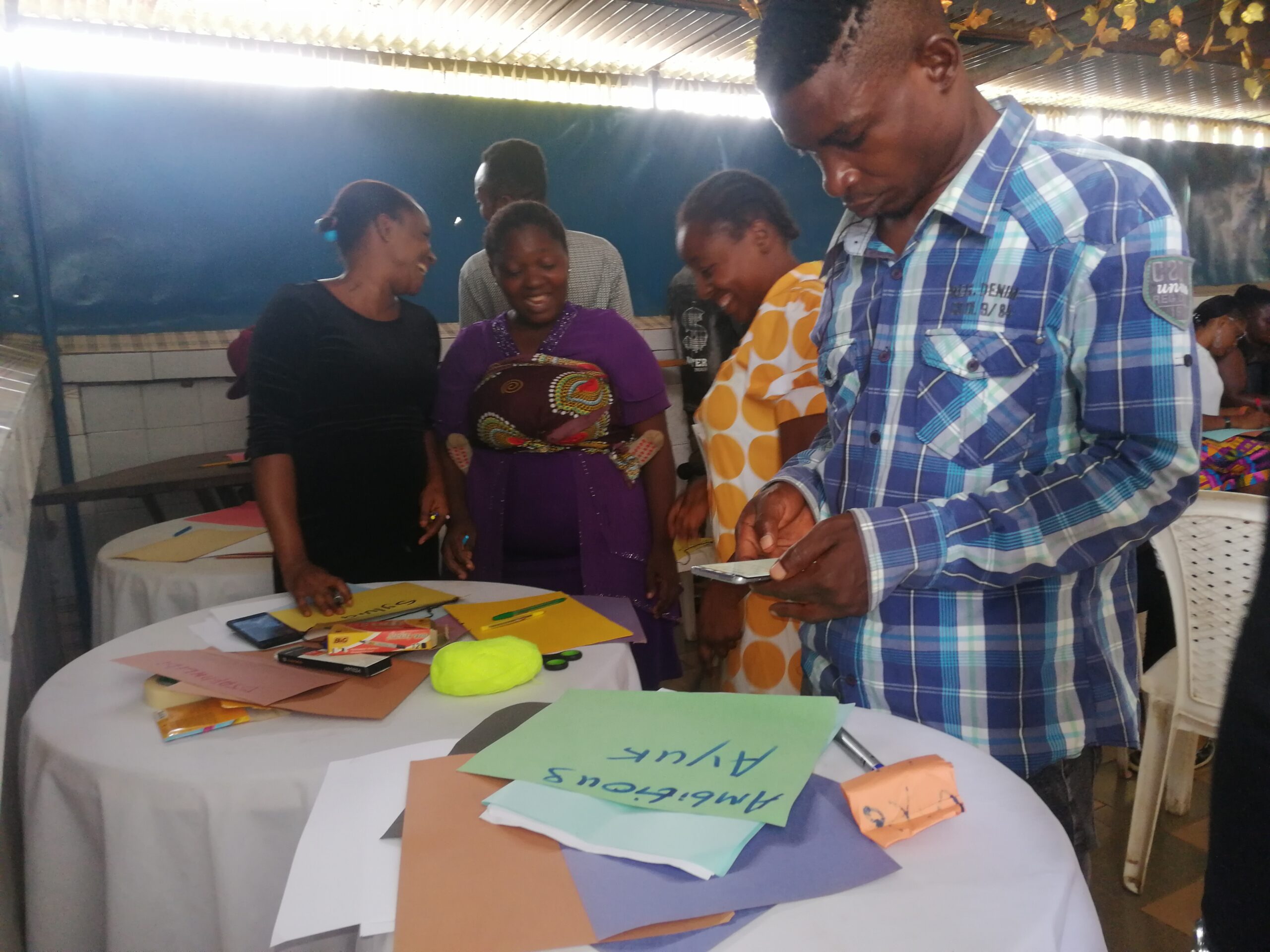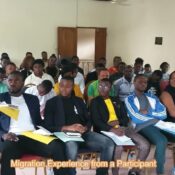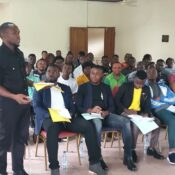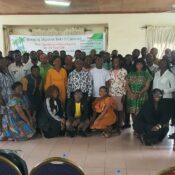
Green City Theatre Road Show Tiko
Plastic waste is the accumulation of plastic objects and particles in the earth’s environment that adversely affects humans, wildlife, and their habitat. Plastic waste is a significant environmental issue that affects communities around the world. It is a global problem that has grown rapidly in recent years. In 2020, the world produced over 370 million tons of plastic waste.
TRAINING OBJECTIVES
The objective of the training has been highlighted on the following points below;
- To help participants understand the impact of plastic waste management to the ecosystem.
- To educate the participants on the importance of plastic waste management and community engagement.
- To enhance their knowledge of plastic waste recycling techniques.
- To educate the participants on government litigation against plastic waste pollution.
Session I: The Impact of Plastic Waste Management to The Ecosystem
The Project Director Mr. Dimo Derrick of RCESD introduced the participants to the topic “The Impact of Plastic Waste Management to the Ecosystem”. He started by giving an introduction and general facts of plastic and plastic waste management. The presentation was mainly concerned with giving the participants an insight into some of the waste disposal problems we encounter in our societies today. He stated some plastic waste problems and what we can do in order to reduce the effects in our societies. The following has been introduced to the participants;
- The definition of the ecosystem and types.
- Effects of plastic waste on the ecosystem.
- Ways to reduce plastic pollution.
Questions
- Question: How can we know when plastic waste can be recycled? Answer: Through the sign and number written on the plastic lid.
- Question: Why are most of the statistics based on America? Answer: Because America has many data on plastic waste and recycling.
- Question: How does plastic waste affect pregnant women? Answer Through the consumption of various foods that are packaged in plastics.
Session II: The Importance of Waste Management and Community Engagement
This topic was done by the Executive Director of EPDA Mr. Tanda Godwin and staff. They gave the participants an insight into the many different problems caused by improper disposal of plastic waste in many communities such as the death of humans, and animals, climate change, and increased economic costs. As such, he encouraged the participants to locally manage their plastic waste by burning, selling, or recycling and to engage in plastic waste management practices as this will help to create awareness and reduce its negative impacts in many communities.
Questions:
- Question: Is there an endpoint on plastic waste?
Answer: There is an endpoint if we have the willingness to change our mindset on how we use plastics.
- Question: Is waste waste?
Answer: It depends on an individual. It can be considered a waste for someone who does not have use for it.
[smartslider3 slider=”14″]
Session III: Waste Recycling Technique
Mr. Tanda Godwin the Executive Director of EPDA was in charge of the waste recycling technique module. In this session, the Executive Director was focused on teaching the participants the different techniques on how to recycle their plastic waste. These different techniques are;
- Collection of used plastics.
- Sorting: This involves the elimination of foreign materials such as metals and glass from plastics.
- Washing: which involves removing of any grease, oils, gums, and sand from the plastics.
- Shredding: which is to cut large particles into smaller pieces.
- And lastly identification and compounding.
Questions:
- Question: How can we wash plastic waste?
Answer: It can be washed through the use of machines or by hand.
- Question: What are the factors that need to be considered when putting out dustbins?
Answer: It has to be convenient accepted and secured.
Session iv: Government Legislation Against Plastic Pollution
In this session, the Chief of Post Environment, Tiko subdivision discussed on the various laws put in place by the government to fight against plastic pollution in our environment.
Session v: The Problem and Solution Tree
The Executive Director of OGCEYOD and staff evaluated the participants by testing their understanding of the subject matter through the problem and solution tree activity. They were given an exercise to choose different topics and bring out their problems and solutions using the problem and solution tree diagram. Participants were also evaluated through video interviews on their understanding of the topic
18-days Theatre Stage Rehearsal sessions for 20 youths and Community Events
The next 18 days were mostly focused on training the participants on how to perform and shoot the short film titled “Mr. Plastic”. This training was done by the theatre arts experts Mr. Stanislas and Mokeyo Ilambo. Each participant was given different roles from the script which best suited them to practice. The participants read through the script to better understand their different roles and practiced together to perfect their skills and mastery of their roles. The participants spent 2 days shooting the “Mr. Plastic” video.
Green City Theatre Road-show crew organized exhibitions of Mr. Plastic in some neighborhoods around Tiko and Mutengene, and 30 neighborhoods targeted for the exercise. Local recycling outfits also participated in the community exhibition events.
Recent Posts
OGCEYOD Cameroon; Managing Migration Risk in Cameroon – Opportunities and Risks in Migration 65 sec
OGCEYOD Cameroon; Managing #Migration Risk in #Cameroon – Opportunities and Risks in Migration
OGCEYOD Cameroon; Opportunities and Risk in Migration (#Managing #Migration Risk in #Cameroon)
There is Always Room to Give
This will put a smile on someone's face.
+237 698 974 201
info@ogceyod.org contact@ogceyod.org




